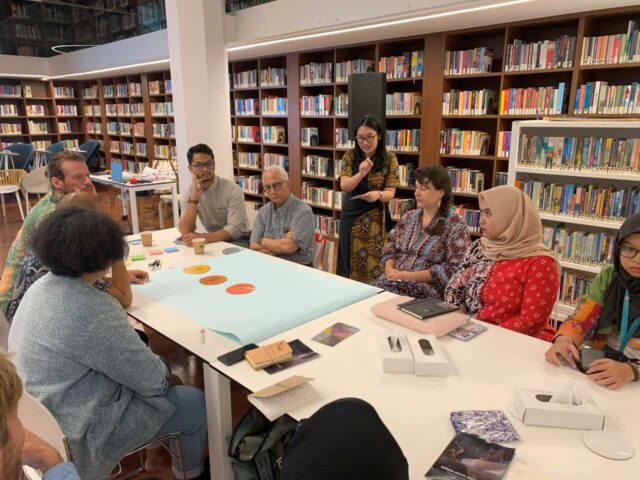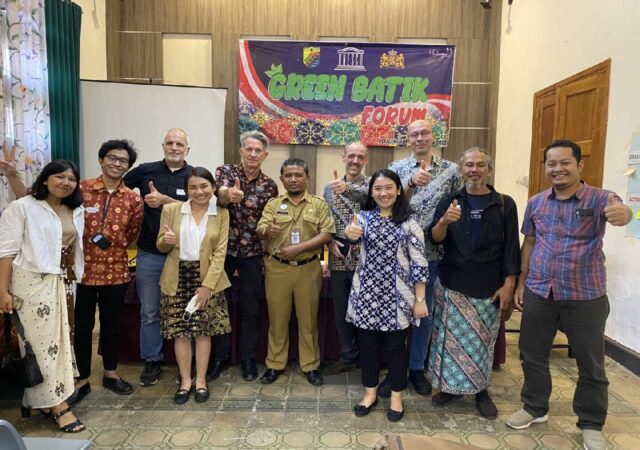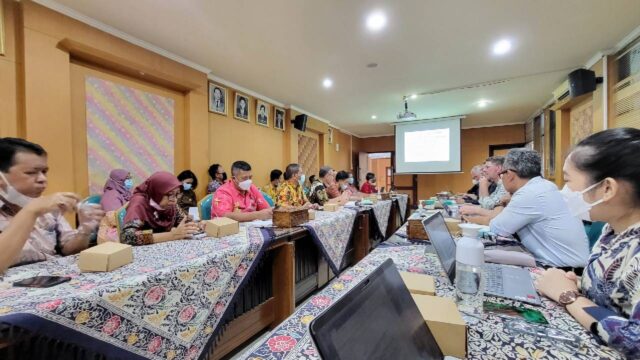
The Next Step: Building Path to Green Batik Pilot Project
As part of the ongoing efforts to promote green and sustainable batik in Pekalongan’s batik industry, we initiated several follow-up activities following the Pekalongan Batik
Pekalongan is a small city on the north coast of Central Java, well-known for its famous batik textile industry in Indonesia. Batik is a UNESCO-recognized Intangible World Cultural Heritage from Indonesia and has always been a part of Indonesian pride and identity, nationally and internationally.
Batik reflects the unique identity of certain parts of Indonesia. The craftsmanship – its pattern, colour combination, and skill – is passed down from generation to generation. Most of the batik in Indonesia is crafted in Pekalongan by approximately 1,500 mostly small-scale, family-owned businesses. Batik industry workshops are spread throughout Pekalongan City, often in small household workshops. To some extent, this industry plays a part in significant overexploitation and pollution of water. Since batik textile workshops use large amounts of water, the sector contributes to the depletion of groundwater and, with that, to land subsidence, making the city more vulnerable to coastal flooding.
The Dutch government is strongly committed to supporting the City of Pekalongan to develop more sustainable and healthy management of water resources to benefit all people. The Water Agency is appointed to run matchmaking activities that will help the local batik communities, government agencies, and the sustainability of the batik sector.
Areas of the matchmaking activities are regarding the industry’s water footprint; addressing the production, management, and treatment of wastewater; and exploring the possibility to reuse treated wastewater and reduce groundwater use. The project begins with assessing local needs and identifying opportunities for possible solutions. Once these have been defined, we will collaborate closely with local stakeholders to match them with solution providers, ensuring that the changes made are both effective and community-supported. By uniting these efforts under one coordinated transformation program, we are dedicated to ensuring a sustainable future for the people of Pekalongan and the batik industry.

As part of the ongoing efforts to promote green and sustainable batik in Pekalongan’s batik industry, we initiated several follow-up activities following the Pekalongan Batik

The Pekalongan Batik Wastewater project continued into Phase 2 and Phase 3, where Phase 2 focused on identifying and selecting the appropriate solutions needed and

The Pekalongan Batik Wastewater Project’s main activities started in May 2022, with the first Phase focused on the needs, solutions, and stakeholders, then connecting the